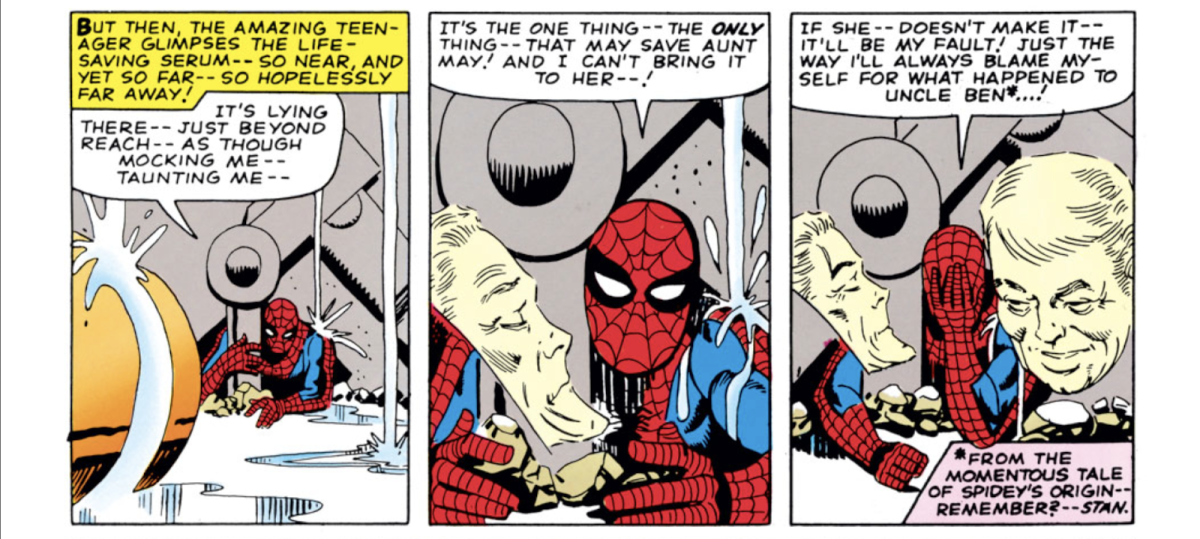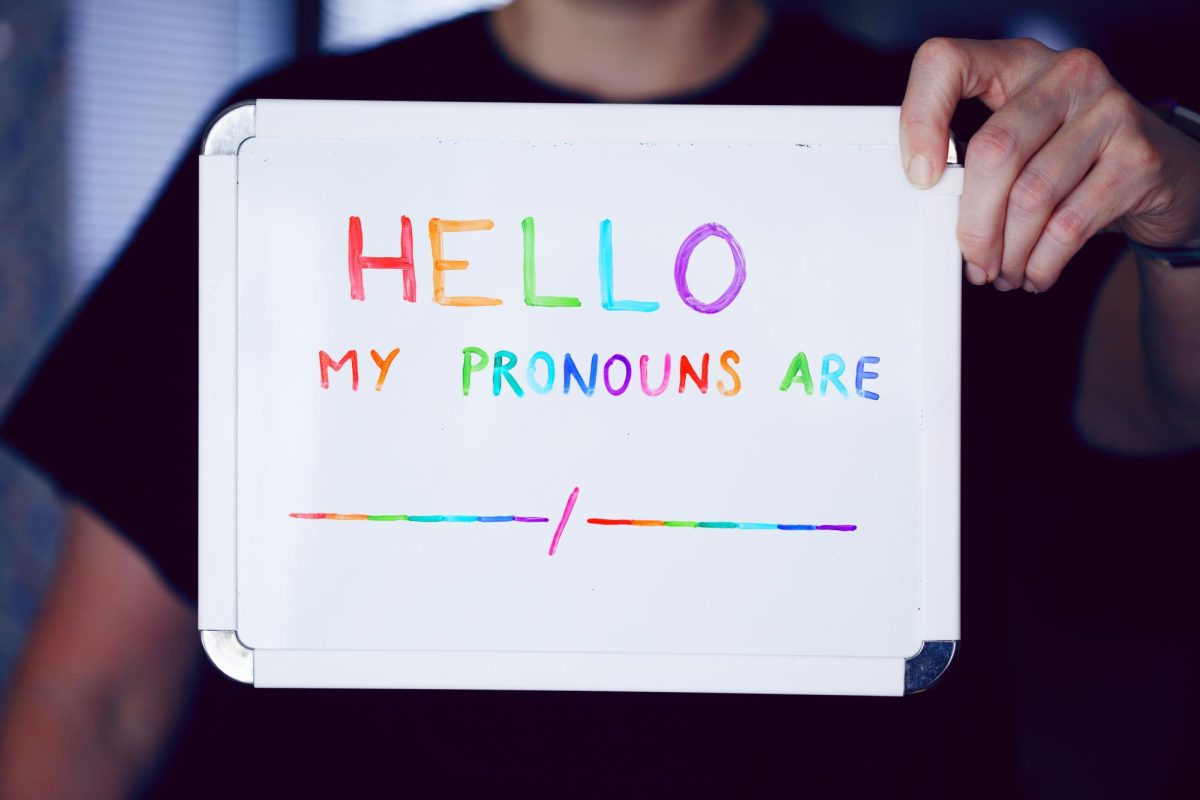Almost all superheroes have a tragic backstory, and Spider-Man is no different, albeit a little more…harsh. Peter Parker is an orphan who tragically lost his uncle, who fulfilled a father figure role for him, and in some variations, a two-time orphan, as he lost both his aunt and uncle. Depending on which universe we’re delving into, Spider-Man also lost various forms of lovers; poor Gwen has seen many brutal, violent deaths.
When anyone else would lay over and die, Peter persevered. These tragedies make Peter who he is: an incredibly resilient and morally good character. He’s been through things most can’t even imagine, yet those who can relate to him in such surreal ways that often are not replicated in other forms of media. Yeah, almost every superhero has some tragic backstory, but did they lose their parents, foster parents, and lover?
Yet, despite all this, Peter conserves his secret identity as a freelance photographer for The Daily Bugle, teacher, scientist, or student, depending on the universe, while maintaining his superhero obligations.
While most in his situation would become bitter or resentful, Peter is the opposite. Peter channels his grief and despair into becoming the best hero. His determination to prevent others from experiencing the same pain he has endured exemplifies how adversity can lead to personal growth, using his pain for a purpose.
Especially within the MCU, Spider-Man is an incredible example of living two different lives, making him an extremely relatable character for the younger generation. Within Sam Raimi’s Spider-Man, Peter has to determine what type of hero he would like to be, directly showing the conflict between these two identities brings Peter to a breaking point.
Peter deals with issues like school, work, and teenage relationships, making him more relatable to audiences who experience the same issues. Although I love Iron Man more than anything, I’ll admit it’s hard to relate to a middle-aged, alcoholic billionaire.
And, despite his treacherous life, Peter demonstrates that anyone can become a hero, regardless of their previous traumas and past experiences. Despite being depicted as young, weak, and beyond ordinary, adorned with dorky glasses, he has extraordinary abilities and uses them for good, making him a symbol of empowerment and the potential for greatness within all of us.
Spider-Man preaches an essential message of morality, responsibility, and sacrifice. No matter how hard it is, Spider-Man will do what’s right. He serves as a role model for readers and viewers, teaching important life lessons about ethics and the consequences of one’s actions.
I’m sure we’ve all heard this line before, but there’s a reason it’s so popular: “With great power, there must also come great responsibility” has become a cornerstone of Spider-Man’s ethos.
In the 1966 The Amazing Spider-Man #33 comic, Peter must free himself from rubble crushing him. Despite the seemingly impossible circumstances and his exhausted, damaged body, he knew he had to save his aunt no matter what and managed to free himself for her sake. This is one of the reasons Spider-Man is so universally loved: he is selfless, brave, and resilient through all odds.
Spider-Man, reminiscent of Atlas, holds his whole world upon his shoulders, the definition of strength and resilience himself.
Spider-Man consistently reminds the viewer of the importance of using one’s abilities for the greater good and taking responsibility for these actions. This moral lesson has a universal resonance, making Spider-Man a character who fights dangerous supervillains and imparts valuable life lessons.
And, despite all this moral goodness and inspiration, Spider-Man is still human and makes mistakes, just like the rest of us. In the 1963 comic The Amazing Spider-Man #1, he lets a criminal escape, believing it wasn’t his problem. However, this decision indirectly leads to the death of his Uncle Ben, where Peter realizes the true meaning and responsibility behind his new identity. He would do anything to prevent anyone from feeling the same way he did at that moment, the turning point in his heroic archetype.

Yet, Peter experiences too many moments of heroic redemption that I could not even begin to list them within this article. Yet, in 2007’s Back in Black, The Amazing Spider-Man #539-543 comic demonstrates Peter’s battle between seeking justice and vengeance. As he once again dons his black suit, he becomes more ruthless in pursuing those responsible for crimes, exploring his inner conflict. Yet, he ultimately returns to his core values and principles, demonstrating his moral dilemma.
Spider-Man is a classical coming-of-age story, and his nostalgia makes his appeal fit any generation. The timeless themes of Spider-Man and his relatability make him a timeless hero who, I’m sure, has much more to show the world.








Stacey • Apr 11, 2024 at 12:09 pm
My son wrote something like this back in 2017 and I found it so powerful that I’ve shared it at trainings for the last several years.
gav • Oct 30, 2023 at 6:12 pm
Spider man is my favorite hero and has a podium spot for most. I love the message that anyone can wear the mask, despite your race, sexuality, gender, etc. can’t wait to see what further projects entail for Spider-Man.